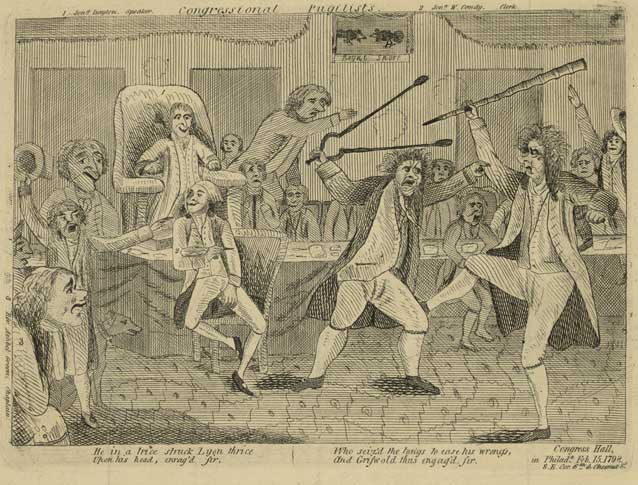In many ways, the War of 1812 began as soon as the War of Independence ended. This new nation struggled to find a place in a broader geopolitical world, leading to domestic tension.
The United States was then a new and weak republic in a dangerous world of powerful empires.

Courtesy, Library of Congress. Prints and Photographs Division.
The slow drift to the new war in North America began with the French Revolution of 1789. Four years later, the British joined the coalition of European monarchies waging war to destroy the radical French republic created by that revolution. During the 1790s, Americans became entangled in the new global war between the French and British, whose fleets and armies fought in every ocean and on almost every continent. Each great power pressured the weaker United States for assistance against the other belligerent. The British played upon the American economic dependence on British imports and on the vulnerability of American merchant ships to the might of the Royal Navy. The French appealed to the Americans as fellow republicans in a shared global struggle against monarchs and aristocrats.
The global and ideological conflict widened a political rift within the United States between the two major parties: the Federalists and the Republicans. During the 1790s, the Federalists held national power, controlling the Congress and the presidency under George Washington and John Adams. But they faced growing opposition from the Republicans led by Thomas Jefferson and James Madison (these Republicans cannot be equated with the contemporary Republican party, which first emerged during the 1850s). The political partisans were so shrill because the stakes seemed so high: the survival of the republic and its tenuous union of fractious states. Although endowed with an immense potential for economic and demographic growth,the United States was then a new and weak republic in a dangerous world of powerful empires.
Neither the Federalists nor the Republicans accepted the legitimacy of the other party. Both cast their opponents as a selfish and destructive faction bent on perverting the fragile republic. Ironically, that dread of parties drove each group to practice an especially bitter partisanship. Claiming exclusively to speak for the people, each party cast rivals as insidious conspirators bent on destroying freedom and the union.
Part of a series of articles titled From the American Revolution to the War of 1812 .
Last updated: March 6, 2015
